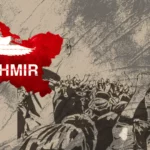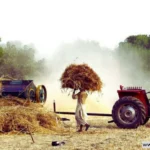As the 18th Lok Sabha elections in India unfold, commencing on April 19 and extending until June 1, 2024, India stands at a critical juncture, poised to make decisions that will shape its future trajectory. The electoral battleground sees the National Democratic Alliance (NDA) and the formidable INDIA bloc locking horns, setting the stage for a high-stakes showdown.
Prime Minister Narendra Modi’s audacious ambition to secure a resounding mandate of over 400 seats in the Lok Sabha stands as a testament to the unwavering confidence of the Bharatiya Janata Party (BJP). Yet, amidst the grandiosity of such aspirations, lies the stark reality of India’s regional complexities and historical fault lines.
18th Lok Sabha Elections and North-South Divide
Take, for instance, the stark North-South divide that permeates the political fabric of the nation. In the southern bastions of Tamil Nadu, Andhra Pradesh, and Telangana, the BJP’s Hindutva agenda finds little resonance amidst the entrenched strongholds of regional parties. The electoral landscape here is a labyrinth of linguistic identities and regional pride, where the BJP’s hegemonic ambitions face a formidable challenge.
Regional Landscapes and Minority Discontent
Similarly, in Karnataka, recent protests led by Chief Minister Siddaramaiah and Deputy CM DK Shivakumar against perceived injustices by the Union Government serve as a poignant reminder of the simmering discontent brewing beneath the surface. The visuals of state leaders marching in unity against the Centre’s policies strike at the heart of the BJP’s narrative of national unity, underscoring the fissures within the federal framework.
Maharashtra, another political crucible, mirrors the shifting sands of Indian politics, where alliances are forged and broken with alarming alacrity. Despite recent successes, maintaining control in the face of coalition changes and opposition maneuvers requires a delicate balancing act that underscores the fragility of political power.
In West Bengal and Odisha, the BJP confronts entrenched opposition from leaders like Mamata Banerjee and the Biju Janata Dal. Buoyed by internal assessments suggesting potential gains, the BJP is poised to make significant inroads, leveraging negative media coverage and voter discontent to its advantage. However, the road ahead is fraught with challenges, as opposition parties rally against the saffron surge, vowing to protect their turf from the BJP’s onslaught.
Amidst the electoral cacophony, the plight of India’s minorities, particularly Muslims, assumes a central role in the national discourse. The Modi government’s controversial policies, including the Citizenship Amendment Act (CAA) and the National Register of Citizens (NRC), have ignited a firestorm of dissent, exacerbating existing fault lines and threatening the fabric of secularism and inclusivity.
Regional Dynamics and Socio-Economic Disparities
Moreover, India’s economic trajectory under the current regime is equally contentious. Despite boasting impressive GDP growth figures, the reality of widening income inequality and persistent socio-economic challenges paints a bleak picture of India’s economic future. With the rich getting richer and the poor struggling to make ends meet, the glaring disparities threaten to unravel the very fabric of Indian society.
Recent studies reveal staggering statistics – the top 1% of India’s population commands over 40.1% of the national income, while the bottom 50% share a mere 15%. This disparity threatens social cohesion and stability, underscoring the urgency of inclusive economic policies.
Also Read: Challenges of Modern India Beyond Economics
As India hurtles towards this electoral crossroads, the imperative lies in fostering inclusive governance, addressing socio-economic disparities, and upholding democratic principles to ensure a prosperous and peaceful future for India and its neighbors. The eyes of the world are on India, waiting with bated breath to witness the outcome of this monumental democratic exercise.
Challenges Facing the BJP in the 18th Lok Sabha Elections
However, amidst the grand ambitions and challenges, the ruling BJP is not immune to its own set of hurdles. Despite Prime Minister Modi’s popularity and the party’s organizational machinery, there are several obstacles that could impede their path to victory.
Firstly, the BJP faces the challenge of anti-incumbency in some states where they have been in power for an extended period. The electorate’s expectations have risen, and any perceived shortcomings in governance could result in voter dissatisfaction.
Secondly, the BJP’s aggressive Hindutva agenda has polarized opinions, alienating moderate voters and minority communities. The party’s stance on issues like the CAA and NRC has sparked nationwide protests and drawn criticism from human rights groups, potentially denting their support base.
Thirdly, the BJP’s traditional stronghold in the Hindi heartland faces stiff competition from regional parties and alliances. States like Uttar Pradesh, Bihar, and Madhya Pradesh, which were once considered bastions of BJP support, now witness a more fragmented political landscape, with regional players asserting their influence.
Moreover, the BJP’s economic policies, while emphasizing growth and development, have been criticized for widening income inequality and neglecting marginalized communities. The party’s focus on big-ticket reforms and infrastructure projects has often come at the expense of social welfare programs, alienating sections of the electorate.
Internal Dynamics and Factionalism within the BJP
Furthermore, the BJP’s internal dynamics, including factionalism and leadership issues, could pose challenges in maintaining unity within the party. Differences of opinion on key policy matters and electoral strategies could weaken the BJP’s electoral prospects and give ammunition to the opposition.
In conclusion, while the BJP enters the 18th Lok Sabha elections with confidence and ambition, it must navigate a complex landscape fraught with challenges. From regional dynamics and socio-economic disparities to internal rifts and ideological debates, the ruling party faces a formidable task in retaining its dominance. As India prepares to cast its vote, the outcome of this monumental democratic exercise remains uncertain, with the potential to reshape the nation’s political landscape for years to come.
Your go-to editorial hub for policy perspectives and informed analysis on pressing regional and global issues.

![18th Lok Sabha Elections in India: Voters line up to cast their ballots during phase one of Assam's state election in Koliabor [Dibyangshu Sarkar/AFP].](https://southasiatimes.org/wp-content/uploads/2024/04/000_96V298.webp)



Add a Comment